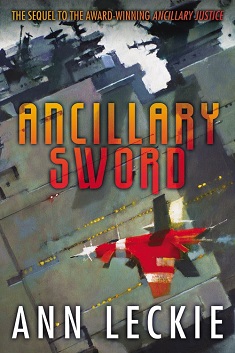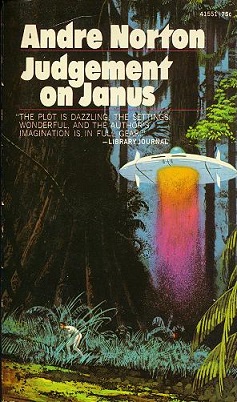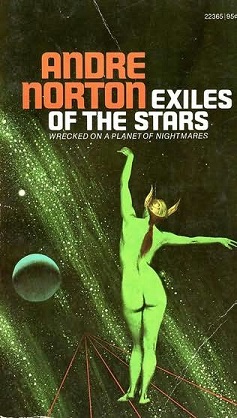Requires Hate is an abrasive blogger from Thailand who made her name pointing out and critiqueing the racism, sexism and orientalism found in science fiction and fantasy, often going after supposedly liberal writers. In the best of circumstances being accused of these things can lead to a defensive response and Requires Hate could be rather aggressive in her criticism. Case in point: her review of Tricia Sullivan’s Double Vision:
It’s a white woman who, through a fictional black woman as her mouthpiece, is describing Japanese men as “little robotic bulls” (the idea of East Asians being robotic itself echoing offensive stereotypes) and “like little Nazis”: not necessarily the comparison that’d first leap to mind when you are describing people who move like robots or even like soldiers at a drill. Later on, after hearing about the sexual assault (perhaps in an attempt to make light of things and make the survivor feel better), Cookie’s friend Gloria idly asks whether it’s true what they say about Asian men’s penis sizes.
And this was for a writer she actually liked at the time. With writers she didn’t, she could be far more biting, if not downright nasty, as with her posts on Cindy Pon’s novels. Furthermore, under her Livejournal persona, Winterfox, she was also accused of bullying and harassment. In short, she made a lot of enemies before she disappeared late last year as it seemed she’d lost the will to blog.
Benjanun Sriduangkaew is a science fiction writer from Thailand who started getting published in 2012, got a fair few excellent short stories published, enough to get her nominated the John W. Campbell Award for best new writer this year. Like any other new writer, she’s active online, on twitter and her blog, which is light and happy and nice and more than a bit twee. You can understand why the moment she got any attention, rumours started that she and Requires Hate were the same person. These rumours apparantly started to intensify around the Worlcon, though the first time I became aware of them was early September, when it was mentioned in the comments at James Nicoll’s blog. Glad I didn’t comment back then so I look smart now, as I was sure it was just stupid to think two people could be the same just because they were from the same neck of the woods and active in sf/fantasy.
Because it turned out to be true this time, as Nick Mamatas officially revealed that yes, Sriduankaew had been blogging as Requires Hate/Winterfox:
Anyway, Benjanun Sriduangkaew used to blog under the name Requires Only That You Hate. I like Bees’s writing, I liked the RotyH blog, and I’ve known (without exact confirmation, but Bees had a contracted story in PHANTASM JAPAN) for quite a while. I suppose I am most interested in the reactions of the people who were yelling that to even suggest that Bees and RH were the same person was racist, which should be hilarious.
All of which would only be mildly interesting if not for the enemies RH/Winterfox had made as a blogger. Because allegedly some of those had been waging a whisper campaign against her, revealing her true identity to her editors and other influential people to try and derail her career. Mostly it’s been done behind the scenes, but at least one author publically called on her readers to write to Sriduankaew’s editors. This sort of doxxing, revealing of real life identities, is one of the worst crimes you think of in many online communities, if only because it’s so often used against people with good reason to be anonymous or pseudonymous. I may have the privilege not to have to worry about keeping my online and offline lives separate, many people don’t.
On the other hand, as has been argued forcefully in James Nicoll’s thread on the news, what’s so wrong in making people aware that sweet butter wouldn’t melt in her mouth Sriduankaew is actually a notorious online bully and abuser? Somebody who’s been careful to not reveal her past, who in fact has been busy memoryholing it?
Which is the biggest problem in getting to the truth of this. So much of what happened has now devolved into he said/she said territory, what with the deletion of posts and comments as well as the general entropy of the internet. None of the people claiming to know the truth are impartial and what’s abuse to one party are just forcefully expressed opinions to the other. What’s more, there are good people on both sides; this isn’t a GamersGate situation or a Vox Day inspired witch hunt. Some of these people genuinely believe that RH was fighting the good fight against racism and orientalism, perhaps a bit abrasive in how she went out it, while others believe that she just used this as a shield to attack women of colour she disliked. The point is, it’s almost impossible for an outsider to find out the truth and at this point it really doesn’t like much like there are any high minded motives behind this fight anymore.
No, this is a good old fashioned fannish feud, where the original cause for the feud are not so much forgotten as irrelevant at this point. People have been hurt and upset on both sides and have caused hurt and upset themselves. Neither side is innocent.
For me personally, I’m going to try and stay out of this fight because I’m far from sure it would solve anything to come down on one side or the other. I like Sriduankaew’s writing, but I also think it would credit herif she was to break her silence and make it official that yes, she was Requires Hate, to be honest about her history. It would credit her enemies to stop trying to ruin her career, or, at the very least be open about believing she’s a toxic influence on science fiction. Don’t keep it festering in the shadows.



